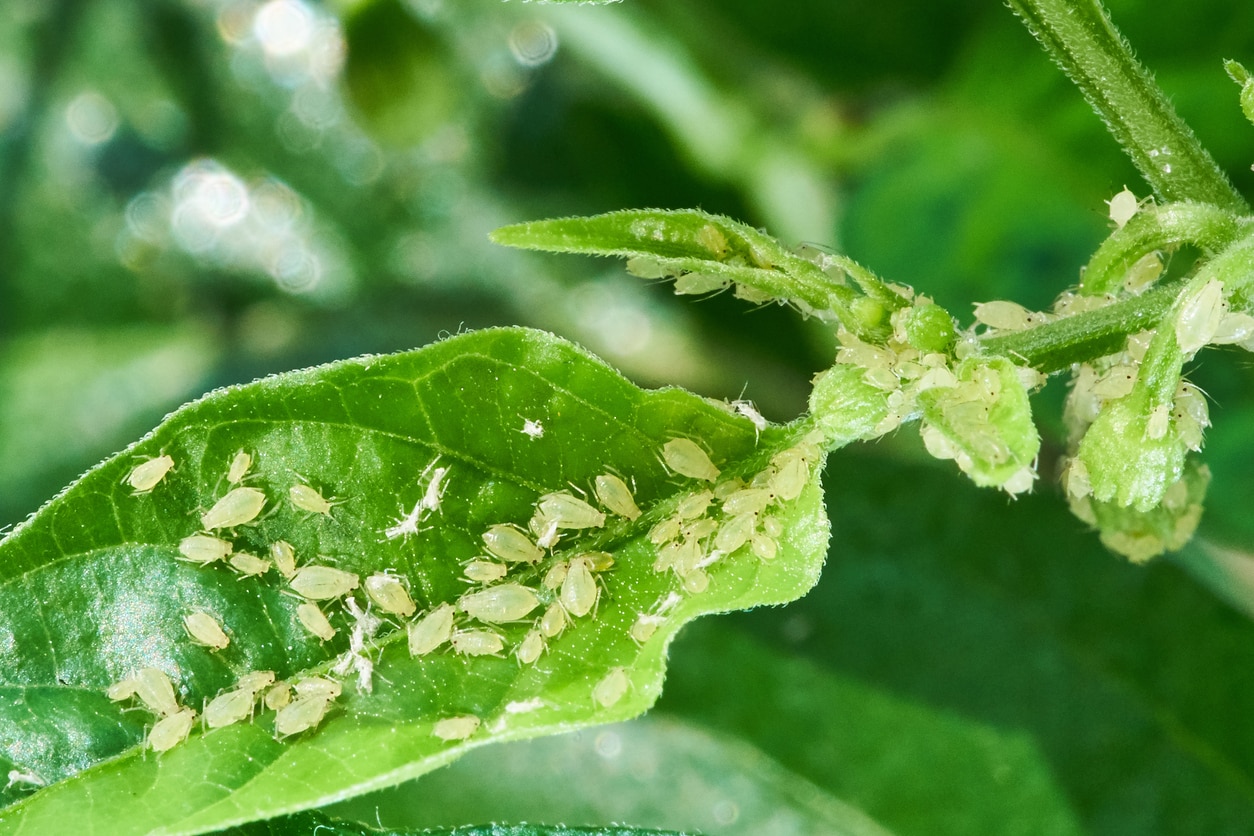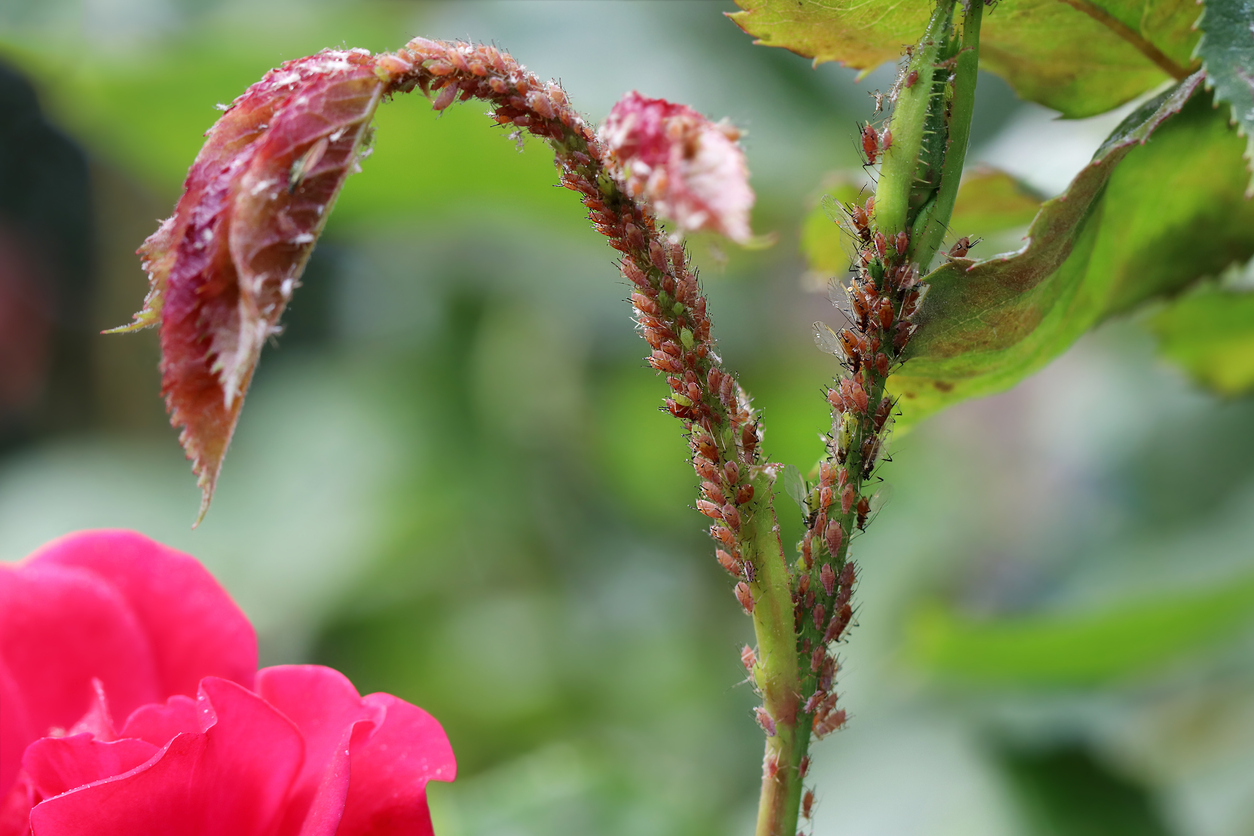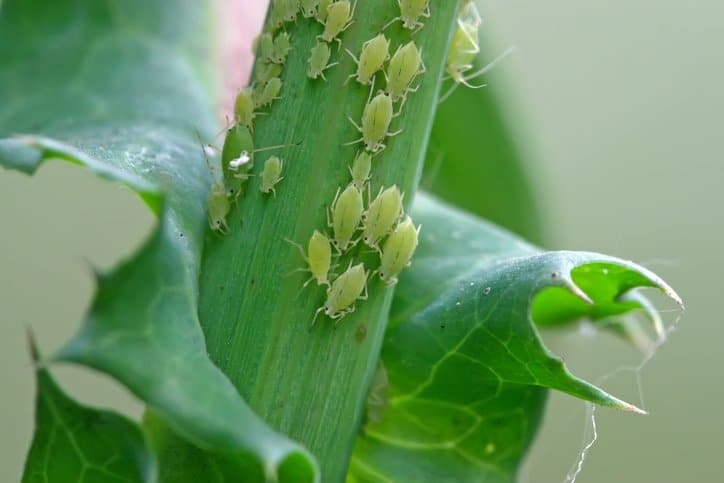Taking care of your garden without chemical phytosanitary products is possible! When a cryptogamic disease or harmful insects appear in the garden or vegetable patch, we know that the damage and losses can quickly be heavy. This is particularly the case during an infestation of aphids in vegetable plants and flowers. However, gardeners concerned about preserving the planet and their wallet can resort to natural solutions to eliminate these sap suckers in plantations. Discover these 4 recipes for anti-aphid sprays that will never make gardening enthusiasts regret chemical pesticides. Forgotten, expensive insecticides dangerous for biodiversity!
1) Anti-aphid garlic spray
Garlic has many virtues and if it is mainly appreciated for its benefits for human health, that of the garden also particularly appreciates it. It is in fact a antiparasitic and an outstanding repellent. To keep aphids at bay, macerate 100 g of crushed garlic cloves in 4 liters of water for 24 hours. The following day, boil your maceration for 20 minutes. You will thus obtain a decoction which, once cooled, can be sprayed on the infested plants. To do this, however, choose a day without rain!
2) The onion, as effective as its cousin
We stay in the pantry this time with the onion! Slice 100 g of it and boil it for 30 minutes in 8 liters of water. Then let it cool well and use this pure preparation as a spray on the plants. Be sure to use the mixture the same day you cook it, as it does not keep. If, however, you have not been able to use everything like aphids, know that the onion can also be used against certain diseases feared by gardeners, and in particular those linked to fungi.

3) Nettles, a good anti-aphid!
Very popular in the garden, nettle can also be used to prepare a mixture to eliminate aphids. To do this, put on your best gloves and take around 1 kg of nettle leaves, favoring the stems without flowers. After this long picking, you will have done the most! You will then just have to let everything macerate in 10 liters of water for 24 hours. The macerate obtained can be used pure on infected plants. You can also prepare a more concentrated nettle manure by letting 1 kg of nettle leaves macerate for 2 to 3 weeks in 8 liters of water. You can then mix 1 dose of this preparation with 7 doses of water before spraying on the plants.
4) Dandelions
What if we stopped looking down on these weeds that are only bad in name? They can indeed be very useful. In traditional medicine, for example, we use dandelions a lot, but their use in the garden remains the best known use due to their antiparasitic power. To use them, it’s simple: macerate 400 g of dandelion leaves in 10 liters of water for at least 3 hours before carefully spraying under the leaves.
You can also consider using biological control to get rid of aphids by adopting a few colonies of ladybugs, hoverflies, lacewings, parasitoid wasps or praying mantises. Otherwise, classic black soap or anti-aphid essential oils can also work wonders! For a small infestation, you can also try removing aphids by hand. Use a damp cloth or sponge to remove them. You can also crush them gently with your fingers or use a fairly strong stream of water to dislodge them. This can be done outside or in the shower if the plant is potted. Just make sure the water jet is not too powerful so as not to damage the plant.
How to prevent the infestation from spreading?

Si possible, immediately isolate the infested plant from other plants to prevent the spread of aphids. Also inspect your plants regularly for detect the first signs of aphids or other pests. The earlier you detect an infestation, the easier it is to control. Acting as quickly as possible when you notice the invasion will limit the damage to your plants and ensure more effective elimination of undesirables.
If part of the plant is heavily infested (such as leaves or shoots), it may be helpful to cut it off and dispose of it to prevent aphids from spreading. Also clean the area around your plants regularly. Finally, remove plant debris, as it can harbor aphid eggs or larvae.
Aphid prevention
Prevention is better than any treatment! So, follow some preventive measures to avoid any hassles.
-Healthy plants are e.g. less likely to be infested. So make sure they get enough light, water and nutrients.
-If you grow vegetables or flowers outdoors, crop rotation can help prevent the buildup of pests like aphids. You can also use insect netting as physical barriers to protect plants susceptible to aphids.
-An excess of nitrogen also promotes the growth of new tender shoots which are particularly attractive to aphids. Also, use fertilizers in a balanced way and without excess.
-Also plant repellent plants that naturally repel aphids (such as mint, lavender, marigold or chives) near sensitive plants.
-Finally, l’huile de neem is a natural repellent for many pests, including aphids. You can use it for prevention by spraying a diluted solution of neem oil on your plants.


